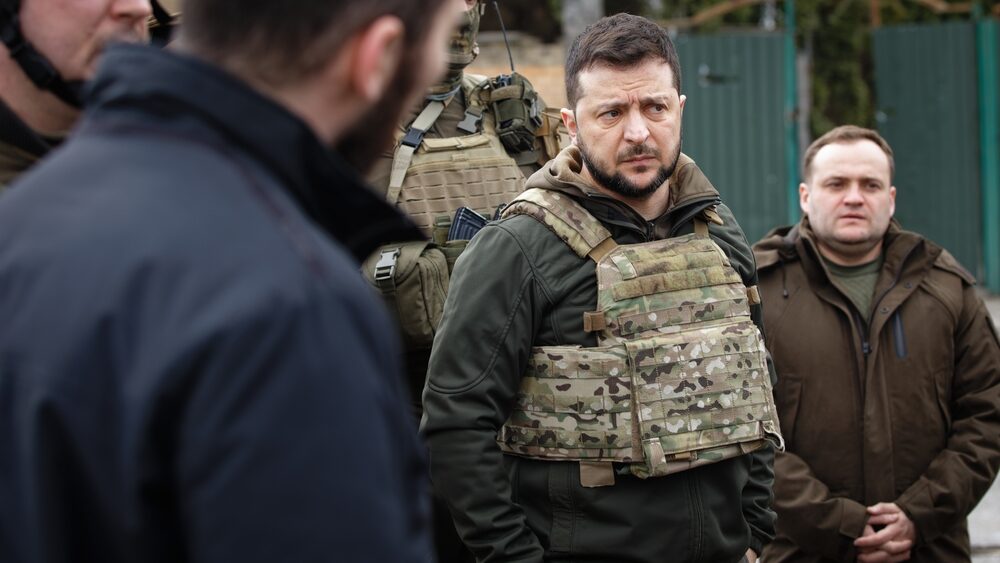
Volodymyr Zelensky
Photo: Dmytro Larin / Shutterstock.com
Volodymyr Zelensky’s closest aides have revealed the anger, division and corruption which is weighing his administration down.
Almost 22 months after Russia launched its invasion of Ukraine, all eyes are now on Israel, which means they are not on Kyiv. Even before Hamas’ October 7th terrorist attacks, there were already signs that Western public support for backing Ukraine was waning.
So after a recent visit to Washington, which appears to have done more to highlight the West’s growing disinterest in the war than turn this around, a member of Zelensky’s inner circle said, without second-guessing, that the president was feeling “angry.” The man himself told Time:
Nobody believes in our victory like I do. Nobody …
The scariest thing is that part of the world got used to the war in Ukraine. Exhaustion with the war rolls along like a wave. You see it in the United States, in Europe. And we see that as soon as they start to get a little tired, it becomes like a show to them: “I can’t watch this rerun for the 10th time.”
Internally, the picture is not much brighter—in fact, it’s not much of a stretch to suspect that Zelensky’s use of the word “nobody” applied even to his own top team.
For Time’s fascinating yet dispiriting long-read, one of Zelensky’s “closest advisors” said their leader “deludes himself” about the prospect of a victory; that “we’re out of options. We’re not winning. But try telling him that.” The magazine itself notes that the president’s “belief in Ukraine’s ultimate victory over Russia has hardened into a form that worries some of his advisers. It is immovable, verging on the messianic” (emphasis added).
"Nobody believes in our victory like I do. Nobody."
— TIME (@TIME) October 30, 2023
Inside Volodymyr Zelensky's lonely fight to save Ukraine as war fatigue spreads https://t.co/7uvz7N4Bh8 pic.twitter.com/tgaQyasld3
With the possibility of working towards negotiating peace with Russia still described as “taboo,” Time added:
Zelensky’s stubbornness, some of his aides say, has hurt their team’s efforts to come up with a new strategy, a new message.
Another of his “closest aides” described how, despite his “messianic” belief in victory, “we’re not moving forward” and some front-line commanders have started to refuse orders to advance. They stressed that “we can’t win a war that way.”
The openness—albeit anonymous—of his allies prompted Italian newspaper Il Giornale to declare that Zelensky has been “betrayed” by those closest to him, who even revealed that his behaviour has altered drastically for the worse as the war has slugged on.
And to make matters worse, one of the few constants over this period has been corruption, which Time says has further “strained” relations at the top. Despite some outward signals that this scourge is being dealt with, a top presidential advisor told the magazine quite frankly:
People are stealing like there’s no tomorrow.
But here, too, there is a distinct divide between Zelensky and his team. Advisors say there is a serious problem that requires much more work. Zelensky reckons that it is, in fact, among his top priorities, and that the West is simply using the issue to “cover up their failure to help Ukraine.”
It appears his frustration at declining support from the West, in contrast to such strong promises at the outbreak of the war, is at least partially clouding Zelensky’s concept of where the main issues lie. But while his team shares a proportion of this anger against the West, they know that problems remain at home, too.
